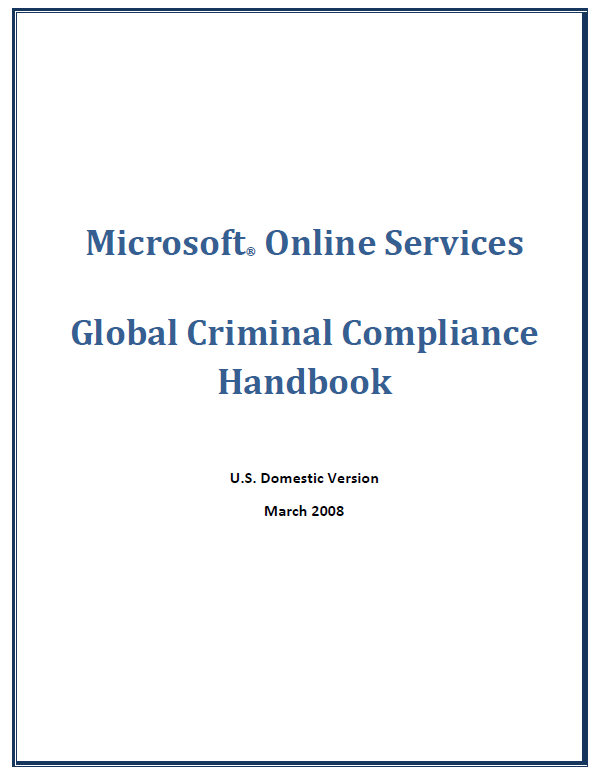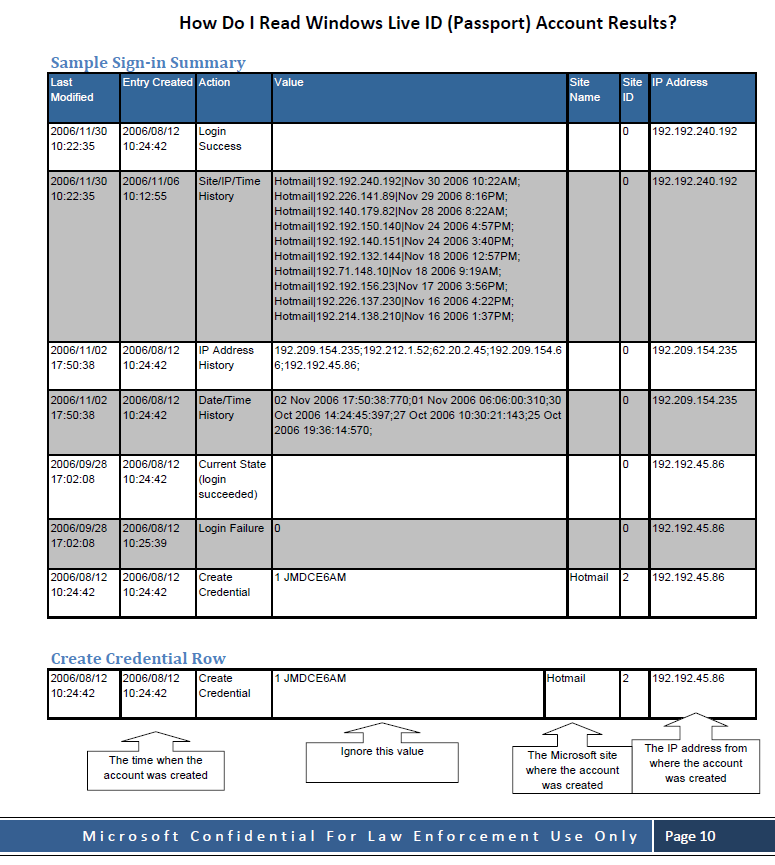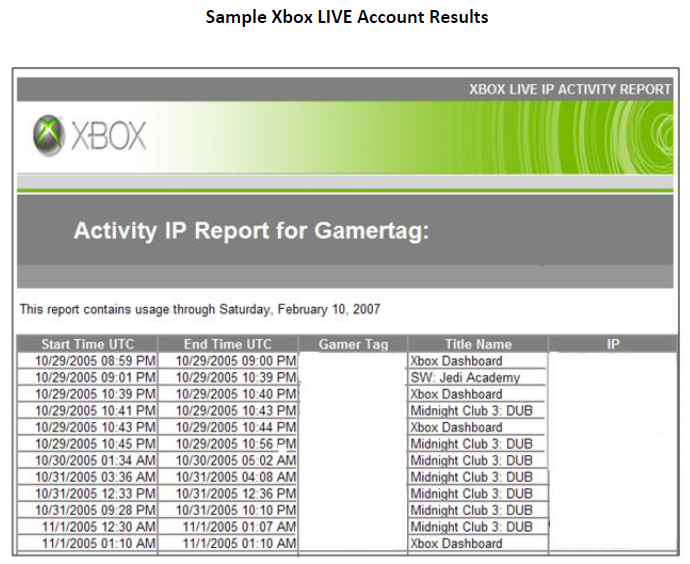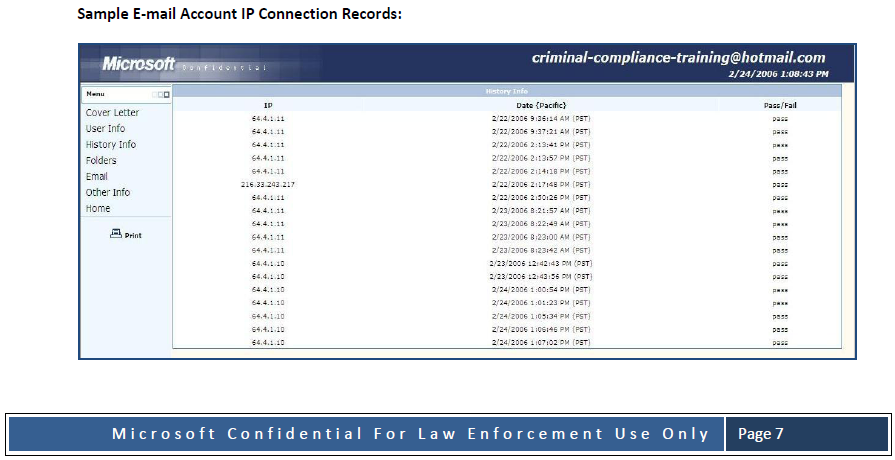 Microsoft Criminal Compliance Handbook
Microsoft Criminal Compliance Handbook
- 22 pages
- Microsoft Confidential
- For Law Enforcement Use Only
- © 2007-2008 Copyright Microsoft Corporation
Legal Process Required for Customer Account Information and Content The Electronic Communications Privacy Act (ECPA) (18 U.S.C. §§ 2701-2712) sets forth the appropriate legal process required to compel Microsoft’s Online Services Records Custodians to disclose customer records and contents:
Information that may be disclosed with a subpoena. Basic subscriber information includes name, address, length of service (start date), screen names, other email accounts, IP address/IP logs/Usage logs, billing information, content (other than e-mail, such as in Windows Live Spaces and MSN Groups) and e-mail content more than 180 days old as long as the governmental entity follows the customer notification provisions in ECPA (see 18 U.S.C. §§ 2703(b), 2705.)
Court orders are required for the rest of the customer’s profile (18 U.S.C. § 2703(d)). A court order issued pursuant to 2702(d) will compel disclosure of all of the basic subscriber information available under a subpoena plus the e-mail address book, Messenger contact lists, the rest of a customer’s profile not already listed above, internet usage logs (e.g. WEBTV or MSN Internet Access), and e-mail header information (to/from) excluding subject line.
Search warrants are required for contents. A search warrant will compel disclosure of all information available with a court order issued pursuant to 2703(d) (as listed above), plus all contents (if prior notice is not provided or an order for delayed notice is not obtained), and is the only means to compel the disclosure of e-mails, including subject line, in electronic storage 180 days or less**.
**A Note About Opened E-mail Content less than 181 days: Under ECPA, e-mail in electronic storage for 180 days or less may be disclosed pursuant to a search warrant. While some have interpreted “in electronic storage” to refer only to unopened mail, a Ninth Circuit decision in Theofel et al v. Farey-Jones and Kwansy, 341 F.3d 978 (9th Cir. 2003) held that opened e-mails on ISP servers are also in “electronic storage.” Therefore, as Microsoft receives and processes legal process for its online services in the Ninth Circuit, Microsoft discloses both opened and unopened e-mail in electronic storage for 181 days or less only upon pursuant to a search warrant.
Preservation Requests 18 U.S.C. § 2703(f): Upon the request of a governmental entity, Microsoft shall preserve all information, including IP logs and contents for a period of 90 days from the date of the preservation. A preservation creates a snapshot of the information in or about the account at a particular point in time, but there is no update of the information throughout the preservation period. Per Microsoft policy, preservations may be extended up to two (2) times. Each extension shall be for a period of 90 days from the expiration of the current preservation, resulting in a maximum of 270 days on a given preservation. An extension does not create a new snapshot, but merely preserves the information for the additional period.
…



